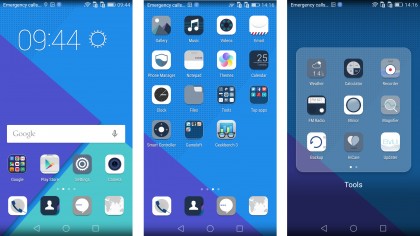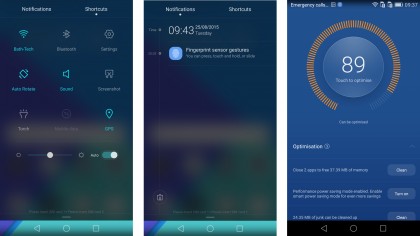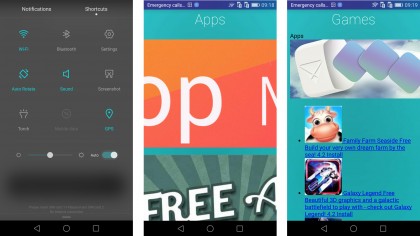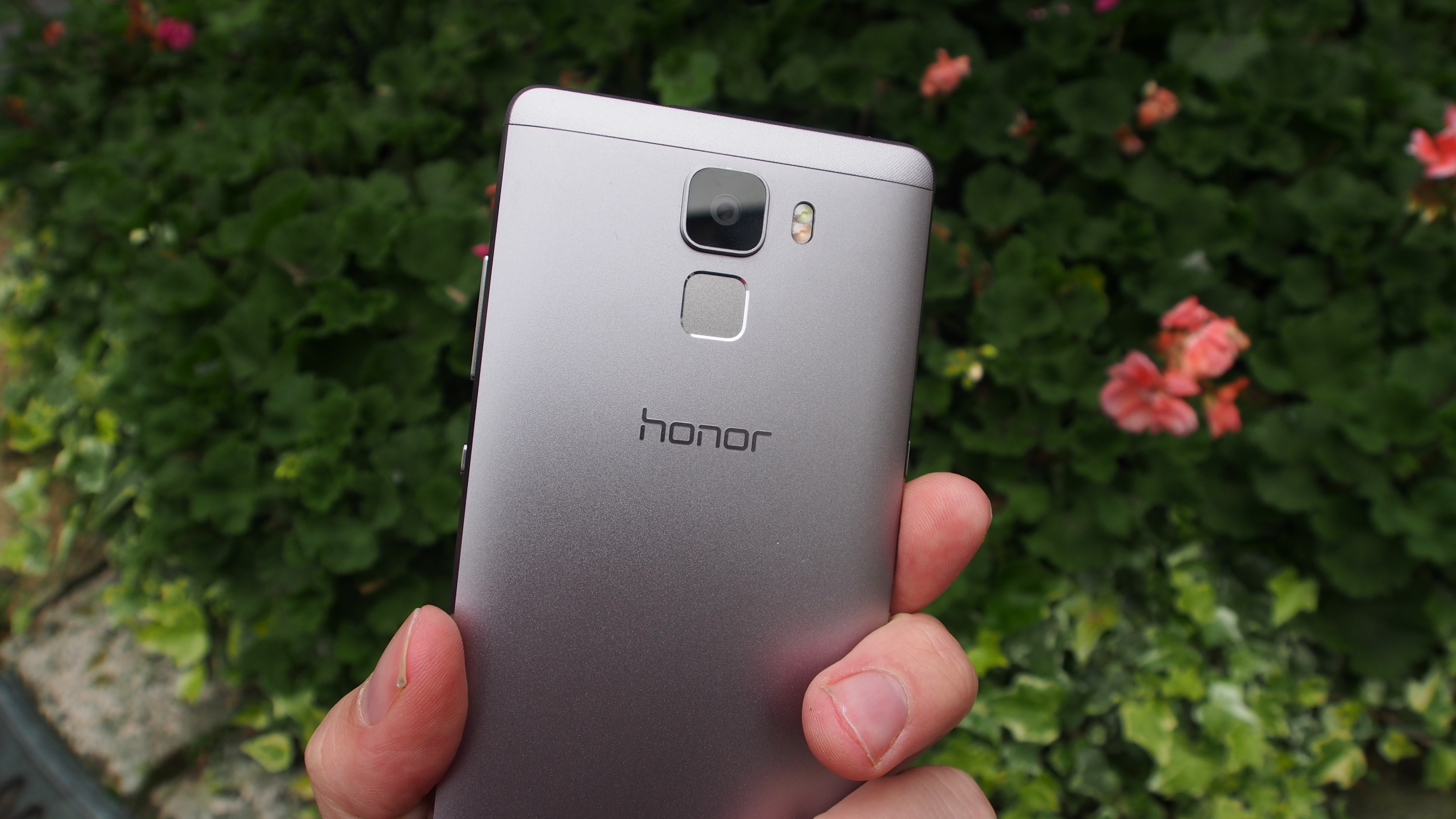Why you can trust TechRadar
The Huawei Honor 7 has a mid-range price tag of £249.99 (around $393, AU$547), but it comes with some pretty impressive specifications.
It's powered by Huawei's own HiSilicon Kirin 935 chipset, replete with an octa-core processor that's made up of four cores running at 2.2GHz and four running at 1.5GHz. This means that when you want to conserve battery life and aren't pushing the Honor 7 too hard it will use the slower cores, while if you're using the handset for more intensive tasks it'll switch to the speedier ones.
After running the GeekBench 3 benchmark test, the Honor 7 scored 3629 for its multi-core performance. This is a fair bit better than the 1590 score the Motorola Moto G (2015) achieved.

The Meizu M2 Note, perhaps the closest competitor to the Honor 7, gets a slightly better – though still not as impressive – score of 2693 with its Mediatek octa-core 1.3GHz CPU.
The Honor 7 also comes with a very healthy 3GB of RAM, which is pretty good for smartphones around this price point, with the 16GB version of the Motorola Moto G (2015) and the Meizu M2 Note having just 2GB.
This relatively generous RAM offering, combined with the decent GeekBench scores, should mean the Honor 7 is a solid performer, and from my time with the handset I can say that's mainly true, with Android 5.0 Lollipop by and large performing well.
Performance wasn't flawless, and there were occasions when the Honor 7 paused and became unresponsive, though these were thankfully rare.
Sign up for breaking news, reviews, opinion, top tech deals, and more.
However, I did experience one particularly nasty crash, with the onscreen buttons becoming unresponsive for around 20 seconds. Some messages, such as one informing me about a network error, would also sometimes stay on screen for a while, which became annoying.

Although the Honor 7 comes with Android 5.0 Lollipop installed, it also has Huawei's own EMUi 3.1 interface overlaid. This brings a number of new features and tools to the current version of Android, while keeping the Material Design aesthetic of Google's stock version.
You can also update it to Android 6 Marshmallow software, which brings with it new features and a bunch of bug fixes.
The default background is a dynamic, Material Design-inspired wallpaper that moves as you scroll through the home page. The custom icons from Huawei are also nice – they're flat with a Material Design look, yet with a monochrome (with occasional small details in other colours) presentation. The effect is very nice.
The lock screen is quite a bit different from Android's default, and displays random stock photos along with the time, and although it can look a little 'busy' at times, I quite liked it.
EMUi doesn't just bring aesthetic changes, however, with Huawei adding its own spin on how you can control Android – with particular attention paid to using the phone one-handed.
Although I'm a big fan of the stock Android experience, I do like seeing phone manufacturers try new things, and in many cases what Huawei brings to the table with EMUi works very well. However, there were occasions where I got a bit frustrated.
For example, when you tap just below the Wi-Fi icon in the quick menu on standard Lollipop this would open a small menu enabling you to switch Wi-Fi networks. Here it just turns Wi-Fi on and off, and you need to go into settings to change the network.
Huawei has also seen fit to include a number of apps pre-installed on the Honor 7, including Twitter, Facebook, WIPS Office and Highlights. Highlights is described as "your portal for free games and apps", and to be blunt, at the moment it doesn't work.

Clicking on the recommended apps currently just brings up a large image that isn't suited to the phone's screen. For games, it again looks like the page hasn't been formatted properly, with text appearing in a number of different fonts, but at least it's usable. Sort of.
It doesn't help that the game recommendations aren't that great, but clicking on the name takes you through to the Google Play Store to download your chosen game.
Hopefully the Highlights app will be fixed when the Honor 7 releases, as at the moment it detracts from an otherwise pretty polished experience.
There are also some pre-installed games, and a Smart Controller app that turns the Honor 7 into a universal remote for your gadgets.
The Phone Manager app is perhaps the most useful of the pre-installed software. It scans the phone and gives you a list of things you can do to optimise the handset, such as closing down apps to free up memory and deleting unnecessary files to give you more storage space.
Even after only a few days of use the program found things to tidy up – and after lengthy use of the handset this program could make a real improvement to performance.
You can have the app automatically perform all the tasks with just one tap, or you can tap on each task to perform it individually. Even better, you can also manually perform the tasks yourself, giving you full control over what's deleted or closed.
While the other apps Huawei has included aren't particularly impressive or inspiring I found the Phone Manager to be well worth trying out, and if you find your Honor 7 is beginning to feel a bit sluggish after a few months of use, running the app to clean up the handset could result in some real improvements to performance.

Matt is TechRadar's Managing Editor for Core Tech, looking after computing and mobile technology. Having written for a number of publications such as PC Plus, PC Format, T3 and Linux Format, there's no aspect of technology that Matt isn't passionate about, especially computing and PC gaming. He’s personally reviewed and used most of the laptops in our best laptops guide - and since joining TechRadar in 2014, he's reviewed over 250 laptops and computing accessories personally.
